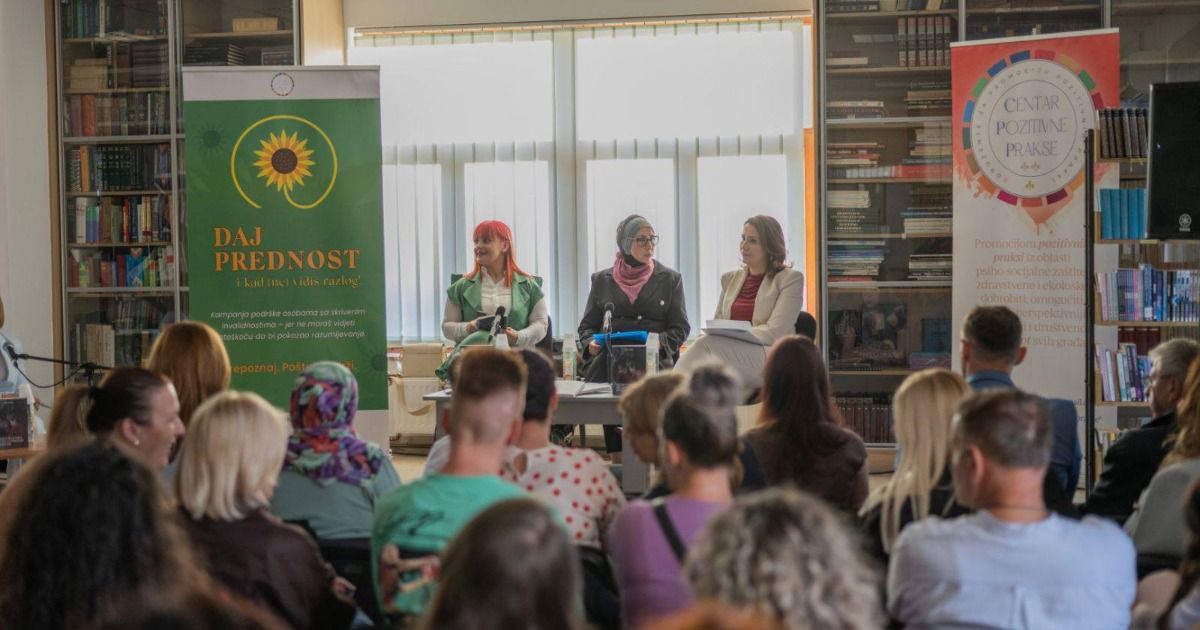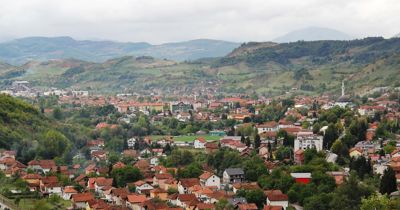
In the municipality of Breza, children and adults with developmental disabilities—as well as their families—face numerous challenges on a daily basis. Without systemic support, access to information, or the right to priority service, many families feel as though they are invisible to the very community they belong to.
"Parents are often invisible, and their struggle goes unrecognized. They have no one to turn to, they don’t know what rights they are entitled to, and they don’t have the time to navigate bureaucracy. They are tired, worried, and alone," says Ilma Omerhodžić of the Center for Positive Practice, a non-governmental organization that, with support from PRAGG, launched an initiative to introduce the right to priority access to public services for parents and guardians of children and adults with developmental disabilities.
Every decision, every day, and every visit to a doctor or municipal office represents an additional challenge for these parents. Many delay necessary errands, knowing they will spend hours waiting in lines with children who need calm and security.
"I’ve had several situations in Breza where, as a parent of a child with disabilities, I was not given priority. In addition to being diagnosed with agenesis of the corpus callosum, my daughter also has autism and epilepsy, which makes it very difficult to wait in line with her—and even harder to leave her with someone else, especially because of unpredictable epileptic seizures. When she waits in line with me, she quickly becomes agitated, cries, resists, and turns to self-harming behaviors... For example, when we’re at the Health Center and each appointment before ours lasts over half an hour, it’s nothing short of a nervous breakdown for me. I give her a phone to calm her down, but once she gets bored with it (which happens quickly), she gets anxious, pulls away, wants to leave... And by the time it’s our turn, she’s too overwhelmed for the checkup to even be effective," explains S.H., the mother of a 10-year-old girl with autism.
In addition to these daily struggles, parents face a lack of understanding from the broader community. Society often holds prejudices toward children with developmental disabilities, leaving parents feeling constantly watched, but never truly seen.
"Every time I have to wait in line, it’s a huge source of stress. My son can sit still for a few minutes, and then the drama begins: pinching me, throwing nearby objects... If I try to explain we have to wait, he starts crying, screaming, hitting his head on the floor. But the worst part is the stares and comments from others. Every time, I feel like people think he’s doing it on purpose, or that I’m a bad mother and he’s a spoiled child. But for him, the crowd and waiting are just too much," shared A.D., the mother of an 8-year-old boy with autism.
This is why the Center for Positive Practice is advocating for a simple but meaningful measure: the right to priority access to services in public institutions. This would allow parents quicker access without added stress and long waits. The Center for Social Work will play a key role in implementing the measure, with support from municipal departments and the Municipal Council.
"This isn’t just about convenience—it’s about respect and dignity. One card can mean an easier day for a family whose every day is difficult," emphasizes the Center for Positive Practice.
"It would mean a lot if the citizens of Breza could recognize how much this matters to us, the parents of children with disabilities, and that we wouldn’t have to ask with shame and discomfort to skip the line. I wish people just understood how necessary it is for us. Children with autism are sensitive to sounds, accidental touches in a crowd, smells, and often even the light itself. It’s truly hard—I don’t have anywhere or anyone I can leave her with for long. I can’t bring her with me, and leaving her in the car isn’t even an option—that’s the worst possible scenario, especially since the parking is disorganized and there are very few disabled parking spaces close to the buildings. If I could pay my bills as soon as I arrive at the post office, or if I didn’t have to wait with her at the health center, it would ease our daily burden and definitely reduce our stress," added S.H., mother of a 10-year-old girl with autism.
The initiative in Breza doesn’t stop there. It envisions a broader support strategy: a day care center, additional specialized staff, and ongoing advisory services. With these efforts, Breza could become a model community—one that doesn’t turn its back on its most vulnerable, but embraces, understands, and includes them.





